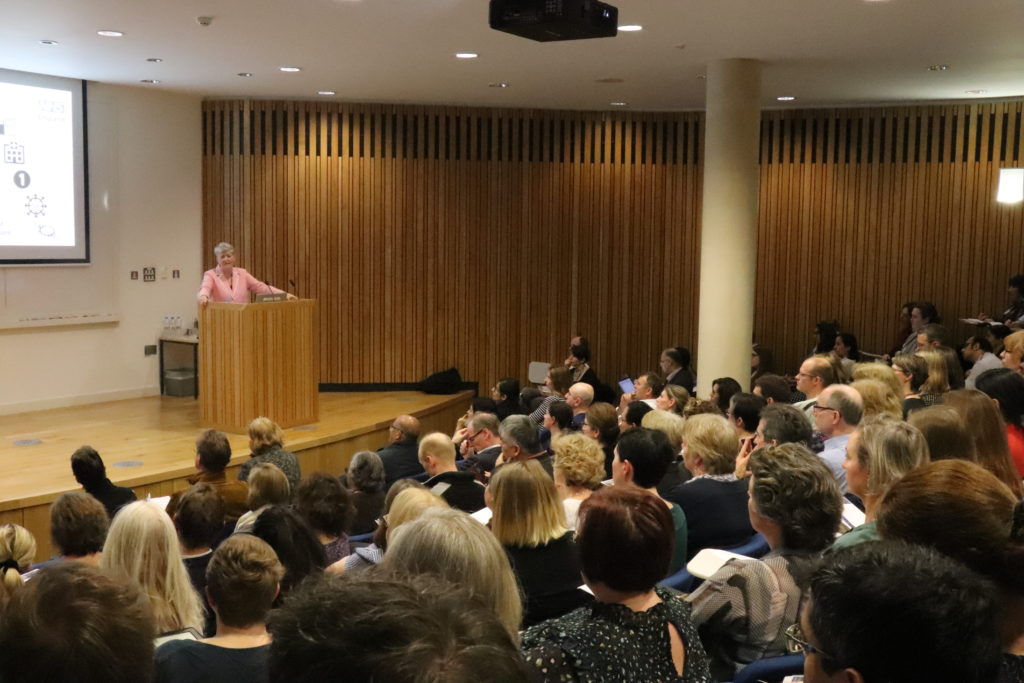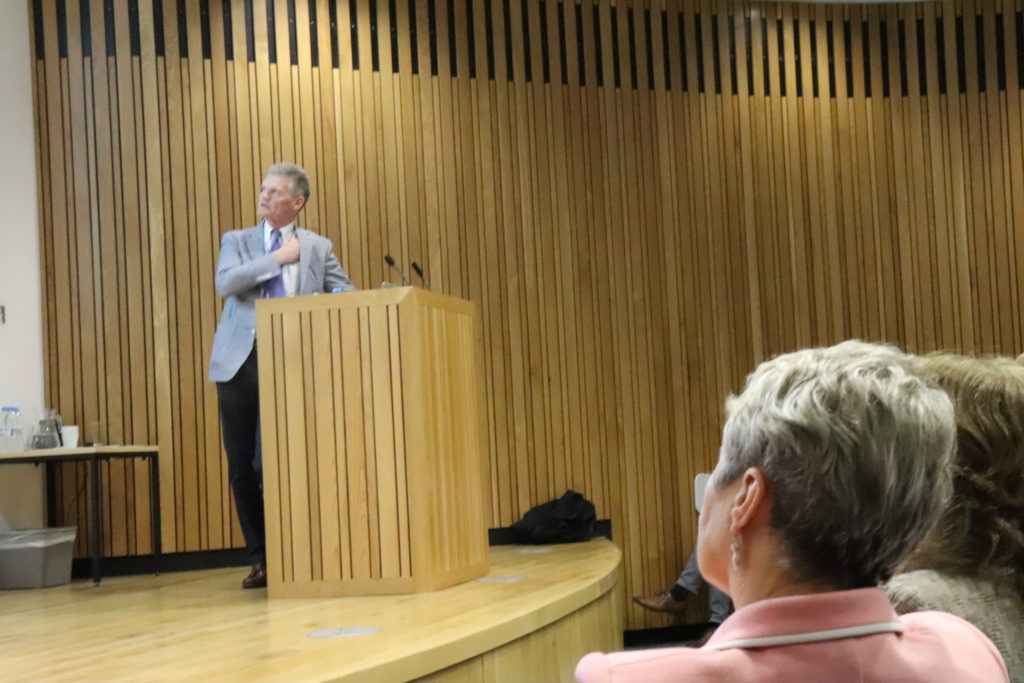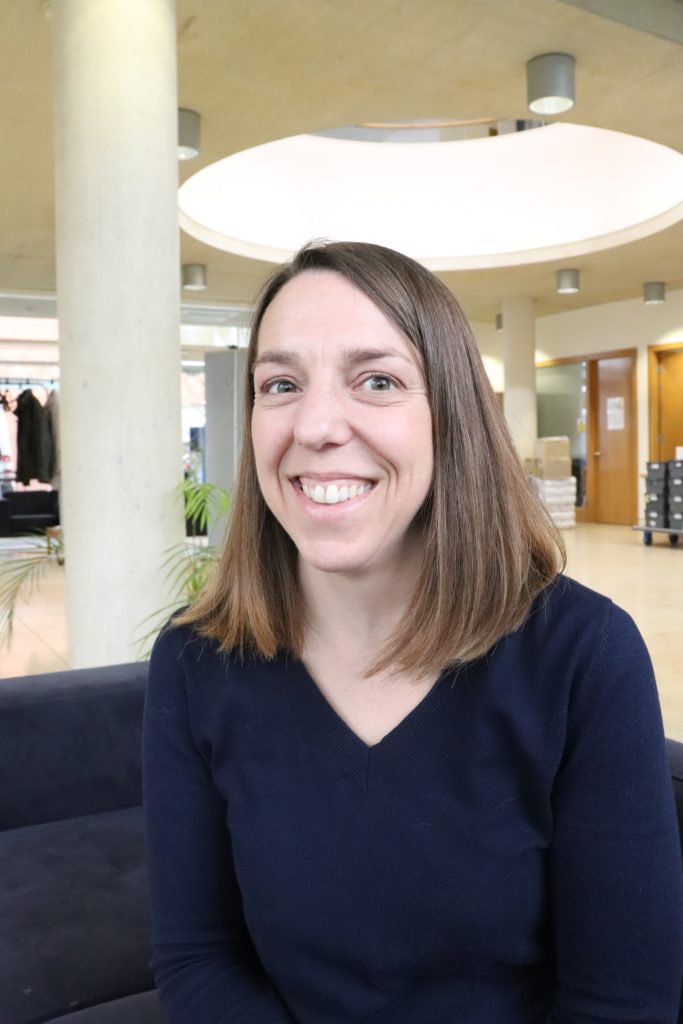A meeting involving clinicians, academics and patients has taken place in Oxford to celebrate the successes of the 100,000 Genomes Project and how genomic medicine becomes a routine part of NHS care in future.

The meeting, held on 28 February, Rare Diseases Day, at the University of Oxford’s Richard Doll Building, was organised by the Oxford Genomic Medicine Centre, based at Oxford University Hospitals. Among the speakers were Sir John Bell, Regius Professor of Medicine at the University of Oxford and Professor Dame Sue Hill, Chief Scientific Officer for NHS England, who praised the “significant contribution to the national programme” made by Oxford .
Two leading members of the NIHR Oxford Biomedical Research Centre’s Genomic Theme – Professors Jenny Taylor, from the Wellcome Centre for Human Genetics, and Professor Hugh Watkins, Head of the Radcliffe Department of Medicine, also spoke at the event.
Dr Edward Blair, Clinical Director of the Oxford NHS Genomics Medicine Centre (GMC), who chaired the event, said: “The reason we’re here today is to celebrate Oxford’s achievements in the 100,000 Genomes Project and our ongoing success from being part of this programme. We recruited over 6,000 patients to the project, and given that we only made up 5% of the national population, that’s a remarkable achievement.
“We’ve helped drive new diagnoses for patients, helped deliver a massive research agenda and we’re taking this into the NHS as part of the new national Genomic Medicine Service, which we’re hearing lots about today.”
Oxford was the biggest recruiter nationally for haematological cancers, and far exceeded its target for recruitment of patients with rare diseases.

Sir John Bell recalled how a group of genomic scientists, who had already been testing whole genome sequencing in clinical diagnostics, convinced the then Prime Minister David Cameron in 2011 to fund the 100,000 Genomes Project.
“This was a high risk project, but it has produced what I consider to be a remarkable state – this is the world-leading example of a genetic diagnostic programme in a healthcare system delivering data at scale,” he said. “No other country in the world is operating at this level.”
He pointed out that the UK – and Oxford – was also making great strides in the fields of digital pathology and artificial intelligence, which, when used in conjunction with genomics made the UK “uniquely placed in this space”.
Sir John, a leading figure in the UK’s new life sciences industrial strategy, explained that genomics is fundamental to the strategy, both in terms of economic growth, especially in the growing digital health field, but it could also underpin a “new paradigm for healthcare”, based on earlier diagnosis.
One of the clearest examples of the legacy of the 100,000 Genomes Project was the announcement last October by the Health and Social Care Secretary Matt Hancock that the one million whole genomes would be sequenced over the next five years, half of them in the NHS.
Dame Sue Hill recalled that the aim for the NHS of taking part in the 100,000 Genomes Project was to “drive transformation in the service” and develop a new model for care. She noted the close alignment between research and clinical care, which would, she said, be the bedrock of the new Genomic Medicine Service.
“In terms of the project and the future, we developed the clinical leadership that is required for change and started to understand the level of workforce upskilling we require if we really want to mainstream genomics into healthcare,” she said.
What was also crucial, Dame Sue said, was the capture of large amounts of patient data that could allow us to better understand genomic variants and be used in future research. “We used this project to build the evidence of what we needed to do for the future” in terms of building the confidence of patients to see the benefits of sharing their data for purposes beyond their immediate clinical care. This will be a feature of the new service in order to build a genomics research database whose benefits will feed back into the NHS.
Dame Sue praised the role of the NIHR, especially the Oxford BRC and the Clinical Research Network, in supporting the project.
Under the new Genomic Medicine Service, Oxford falls under the Wessex and West Midlands Genomic Laboratory Hub (GLH), based at Birmingham Women’s and Children’s NHS Foundation Trust. It will be one of seven GLHs, working together as a national testing system that will continue to test for rare diseases and some cancers, and will over time be expanded to include other common diseases.
Around 170 people attended the event. Speakers at the event included parents of patients with rare diseases who had benefited from taking part in the 100,000 Genomes Project, among them Katrin Gebhard, from Buckingham.

Katrin’s six-year-old son Nic was diagnosed with Wiedemann-Steiner syndrome, which affects just a few hundred people worldwide.
Following several years of inconclusive GP and hospital visits, it was suggested by the clinical teams at OUH that they take part in the 100,000 Genomes Project.
“For us it was a welcome opportunity to get everything checked. Until then it’s so vague; you are just guessing. When you find out definitely what it is, you have a name for it and you can deal with it. When we found it his diagnosis, it was just relief,” Kat said. “A lot of little things started to make sense. It sounds silly, but it meant it was not my fault. It wasn’t a result of something I’d done or hadn’t done.”
The 100,000 Genomes Project is still working to return results to all participants nationwide and it’s hoped that hundreds of patients locally will be helped by new information, with thousands more benefiting from the advances in medical research made possible by the project in future.